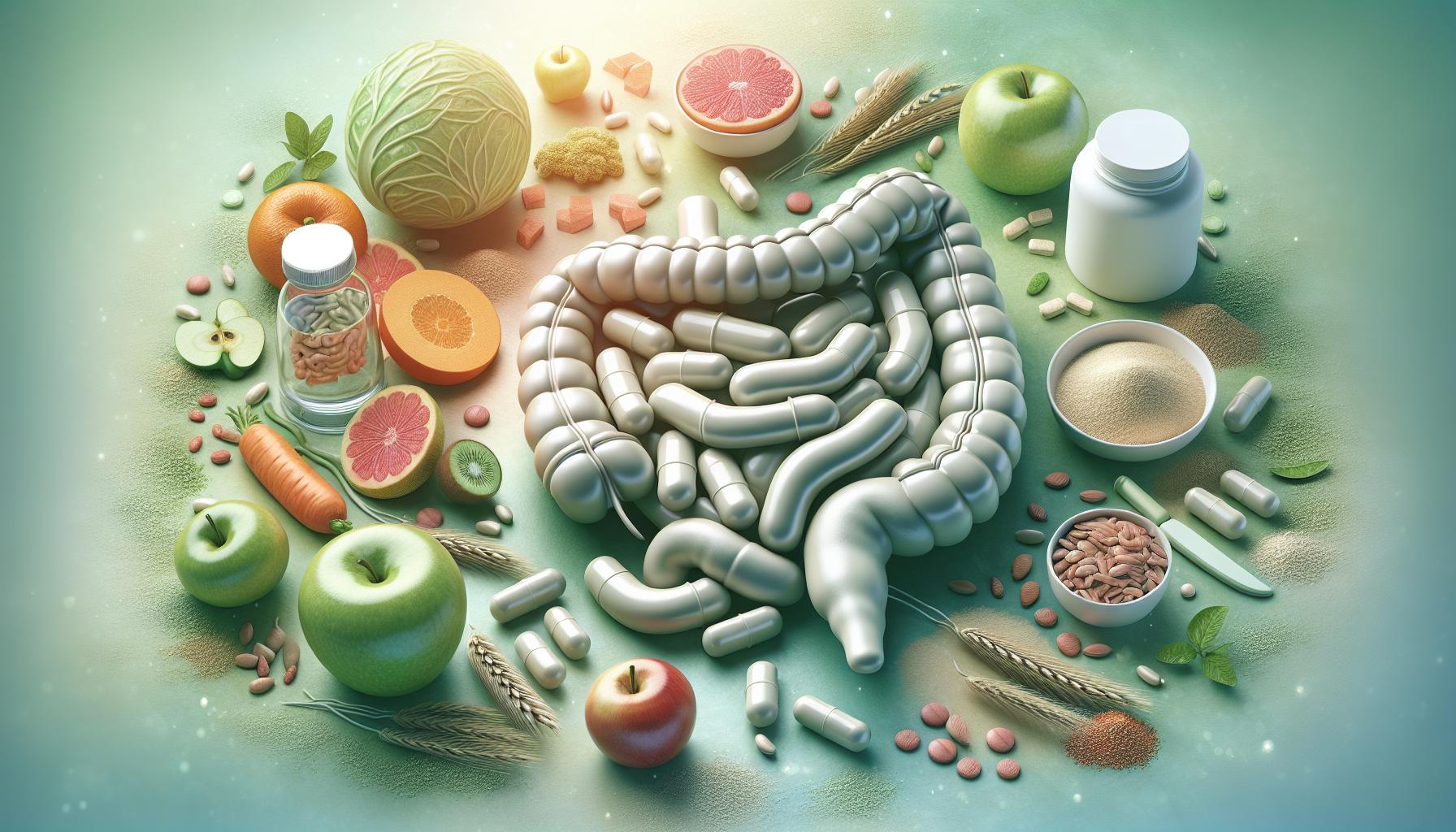
Introduction
Are you wondering how to get digestive enzymes? Well, the answer is relatively simple. Digestive enzymes can be naturally obtained and boosted in various ways; primarily through diet, lifestyle changes and supplements. Let’s take a moment to delve into the importance of these essential enzymes and explore the different ways you can naturally boost your body’s enzyme production to improve your digestion and overall wellbeing.
The Value of Digestive Enzymes
Digestive enzymes are critical catalysts aiding the breakdown of nutrients in our food into smaller molecules. This metamorphosis is akin to a well-choreographed dance, balance and timing being paramount. Primarily, our bodies produce these enzymes, but certain situations might necessitate a boost through external sources.
How Do Digestive Enzymes Work?
Imagine your digestive system as a bustling city, and the digestive enzymes are the efficient workers responsible for keeping the city affluent and clean. When food enters, it’s like a new shipment of goods that needs to be sorted. These enzymes act as proficient sorters, separating proteins, carbohydrates, and fats, making sure all nutrients are adequately utilized, and no waste is left behind.
Boosting Digestive Enzymes Naturally
Natural is always the way to go, and with digestive enzymes, it’s no different. Naturally boosting your digestive enzyme levels is relatively straightforward. It’s all about making healthy lifestyle choices and paying attention to what you consume.
Eating Fiber-Rich Foods
The path to richer digestive enzymes might just be forkful away. Foods such as fruits, vegetables, whole grains and legumes are bursting with dietary fibers that naturally aid digestion and encourage production of digestive enzymes.
Consider Probiotic Foods
Looking beyond the usual dietary choices, feasting on fermented foods bolsters your digestive enzymes. Foods like yogurt, kimchi, sauerkraut, and kombucha are rich in probiotics, a friendly colony of bacteria that can aid in digestion, thereby enhancing your body’s enzyme production.
Friendly Fats
Good fats like avocados, nuts, and olive oil are not only heart-healthy, but they also trigger digestive enzymes’ production. Incorporating these into your diet is like handing out an open invitation to good health and balanced digestion.
The Active Lifestyle Advantage
Beyond the plate, factors such as regular exercise and stress management also influence digestive enzyme production. As active as a beaver on a woodworking spree, an active lifestyle enhances digestion and subsequent enzyme production.
The Power of Hydration
Like sunshine after a drizzle, staying hydrated aids digestion, improves nutrient absorption, and promotes enzyme production. Drinking adequate water throughout the day is a boon for your digestive system.
Conclusion
Getting digestive enzymes naturally is no herculean task. It all comes down to conscious eating, staying hydrated, managing stress, and leading an active lifestyle. So adjust your sails, take the natural route to boost your digestive enzymes, and say goodbye to digestive discomforts.
Frequently Asked Questions
1. What foods are high in digestive enzymes?
Fruits like pineapples and papayas and fermented foods like kimchi and yogurt are high in natural enzymes.
2. Can I take digestive enzyme supplements?
Yes, you can. However, it’s always recommended to consult with a healthcare professional before starting any supplement regimen.
3. How can I improve my body’s enzyme production?
Some strategies include eating enzyme-rich foods, staying hydrated, managing stress, and maintaining an active lifestyle.
4. Are there any side effects to taking digestive enzyme supplements?
While generally safe, some people may experience minor side effects like diarrhea, nausea, and stomach cramps. It’s advisable to seek medical advice before starting any supplements.
5. Can digestive enzymes help with weight loss?
While digestive enzymes aid digestion, there is no concrete evidence linking them directly to weight loss. They do, however, contribute to better nutrient absorption, which may influence overall bodily functions.

